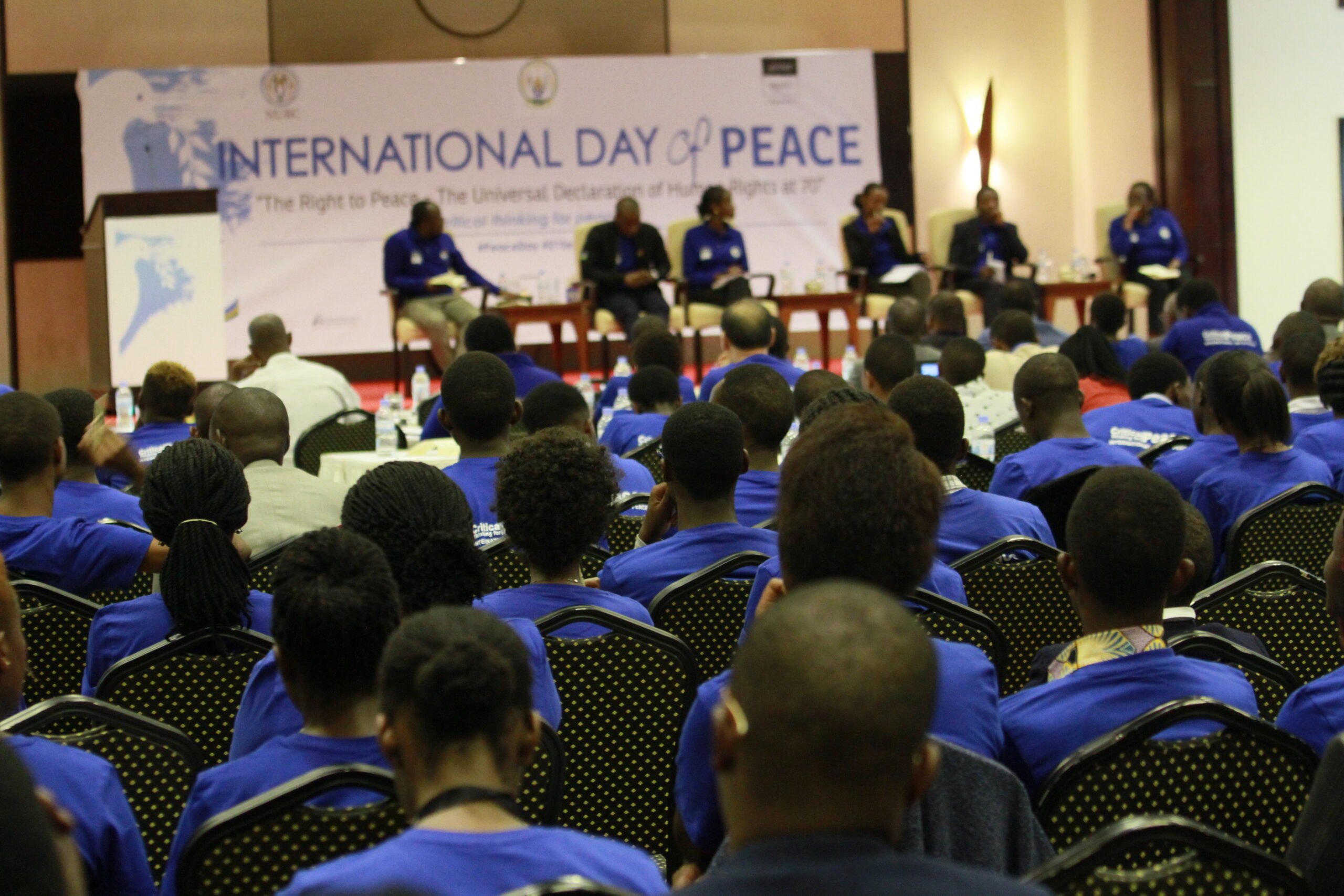International Day of Peace is celebrated around the world each year on September 21, a day devoted to strengthening and promoting the ideals of peace. This year, as Rwanda observed the day in an event that convened over 400 participants, the young population was urged to become the peacemakers of today and the future, allowing for positive action to occur in their homes, schools, and communities.
In Rwanda, the National Unity and Reconciliation commission in collaboration with Never Again Rwanda among other peace Actors inspired by the global theme: “The Right to Peace – The Universal Declaration of Human Rights at 70”, adopted a national emphasis on: “Critical thinking for peace”, aimed to reflect on how and when critical thinking can contribute to tolerance, healing, and social cohesion among community members in the context of the post-1994 genocide Rwanda.
The floor was opened by the President of the National Unity and Reconciliation Commission Bishop John Rucyahana who reiterated the role of youth in peace building as a strong and sustainable foundation for a peaceful future.” Youth should play a big role in upholding peace we have today and preserve it for the future generation”.
While speaking on behalf of the peace actors, Dr. Joseph Ryarasa Nkurunziza, the Executive Director of Never Again Rwanda mentioned the importance of youth discussing critical thinking for peace as the capacity to take different perspectives and reflections that contribute to peace values noting that “critical thinking facilitates youth to take different perspectives and reflection to contribute to peace values such as empathy, respect, trust and taking action which promotes social cohesion”.
In her key note address, the Minister of Youth, Rosemary Mbabazi urged youth to think critically about what they are told and what they read especially on social media platforms in order to maintain lasting peace. “Young people, you are not too young to make peace. Use critical thinking when you are posting and reading messages on social media”.
The youthful audience participated actively, bringing the attention to a number of issues hindering them to effectively use critical thinking in their respective communities such as lack of self-confidence, silence in families and schools and lack of self-responsibility.
Blaise Umuhoza, Youth don’t have enough information because of some families who don’t want to tell the truth about the past. On the other hand, youth have no willing to read. You can’t be able to think critically without facts and enough knowledge.
Shema: Critical thinking is not an accomplishment of a certain period; it is the way you think when you want to discover your talent or solving problems. Youth need the motive and opportunities to listen and be listened too in order to improve their critical thinking.
Stella Izere Umukunzi: In Rwanda, we acquire skills from our families and schools, but our schools and families do not provide us the capacity to acquire critical thinking skills. Youth often times become victims of the environment they belong to.
Twagiramungu Victor: As the youth, we are very busy with diverse irrelevant things that limit us to think big such as Whatsapp, new songs, birthdays which deprive time to think for ourselves. This digital world has locked our minds.
Pauline Umwanankunda: Lack of self-confidence is one of the matters that limit our critical thinking skills, sometimes we follow the instructions of others without asking why. This also impedes our critical thinking.
As youth were called on to acquire critical thinking skills, there were also urged to say no to violence, injustice, corruption and stand up for peace and human rights wherever they are.


